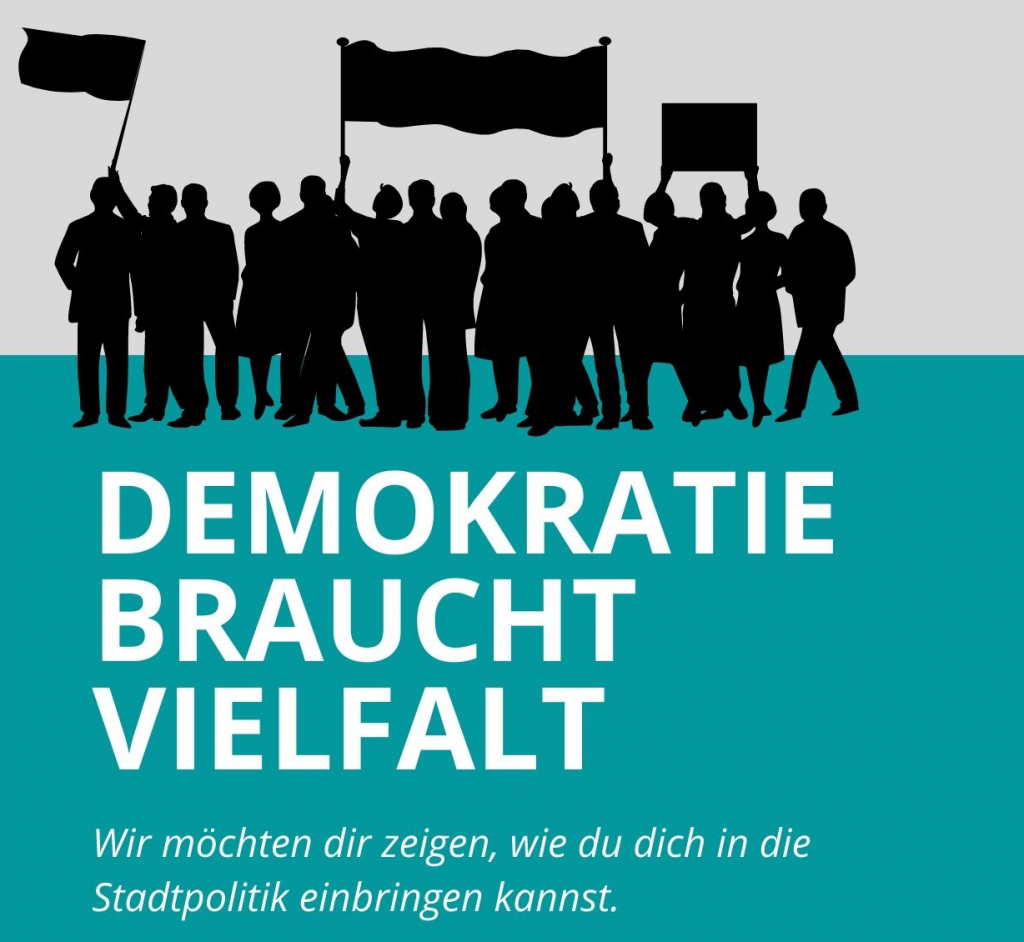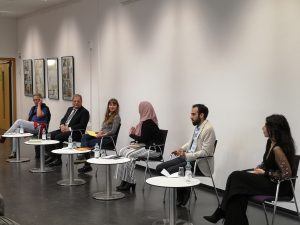Leipzig: Diversity shapes the future
There are people in this city or in this country who hardly have a voice. People with a troubled past who took a path that could have ended in death; But, they were lucky.


They arrived here and hope for a peaceful future. Yet, in order to settle in Germany for good, they have to participate in social life, and that means politically as well. Promoting this political participation was the goal of our project Leipzig: Diversity shapes the future.
In two project rounds, the second only for women, migrants had the opportunity to learn more about local politics in Leipzig and to make their voices heard. The content of both rounds was identical: there was a first meeting for the participants to get to know each other, where they also got first insights into local politics. In order to make the whole thing more tangible, the next meeting took the participants to the city council in Leipzig. Here the participants had the opportunity to talk to a city council member and ask all their questions. There were lively discussions in the course of the democracy game QUARARO and on the following day, when the participants met with a member of the migrant advisory council of the city of Leipzig and formulated common positions and elected a representative.
The two elected representatives had the opportunity to exchange views with Leipzig’s local politicians in the concluding panel discussion and to stand up for the shared positions of the participants.
On the panel on 30 October 2021 in the Leipzig City Library, the two project participants discussed with Prof. Dr. Thomas Fabian, Mayor of the City of Leipzig for Social Affairs, Health and Diversity, with Tim Elschner, City Council member and spokesperson for citizen participation and transparency from Bündnis 90 – Die Grünen, and with Naem Tarek, member of the Migrants Advisory Council. The discussion was led by project manager Christin Warkentin. The topic in the presence of 40 guests – more were not possible due to the Covid-19 pandemic – was „How can migrants get involved politically?“
That the question is not so easy to answer was made clear by the quote of a project participant who said right at the beginning: „We have lived in dictatorships, we have to learn democracy first“. And this is exactly what the discussion contributed to, as there was a lively exchange on the panel and also between the panel and the guests. A few highlights:
„Is Leipzig a place of diversity and is that appreciated?“
Prof. Dr. Fabian’s answer was Yes. Leipzig is a place of diversity and will continue to be so, because people with different lifestyles are welcome here. Nevertheless, he also made it clear that diversity does not automatically mean social and political participation, and that a lot still needs to be done here.
The need for improvement was also underlined by the project participant on the podium when she stated: „We, migrants, often feel that we are not being asked“. She went on to say that there are two sides in society. On the one hand, there are the Germans, who have an active say, and on the other hand, there are the migrants, who do not have this right. However, social diversity requires equal rights of participation for all.
„How can social cohesion be guaranteed?“
Here, Prof. Dr. Fabian made it clear that it is a permanent process in which one thing must be clear: The cohesion of society is based on trust. Unfortunately, trust is often overlaid by prejudices and these can only be eliminated through active communication.
However, the guests – who also had the opportunity to contribute – made it clear that all this is not so easy. They asked questions like „How can my son be equal if I am not and I am not seen by society?“ or „How can I get involved, if I don’t know how and who my representatives are?
It became particularly emotional when several participants reported discrimination („Everything takes longer just because I’m a migrant“), which confirmed Prof. Dr. Fabian’s statement that trust is always needed first. Trust that sometimes does not exist. So, it was all the nicer that Mr Fabian agreed to investigate the discrimination which had been reported and gave his contact details to those who had reported it. It was here that it became clear how important it is to talk to each other. Only in this way can the problems (or open questions) be clearly named and solved in perspective. He followed this up with an appeal in which he made it clear that everyone has the right to express their opinion and that all those present should and must make sustainable use of this.
And that the participants and guests of the panel discussion intend to do just that became clear that evening and throughout the entire course of the project. Finally, we would like to thank our sponsors, without whom the project would not be possible, and Naem Tarek, Tim Elschner and Prof. Dr. Thomas Fabian, who not only discussed with the two elected participants, but also answered all the questions of the guests, thus making it clear that they not only have a voice, but that it is also heard.

